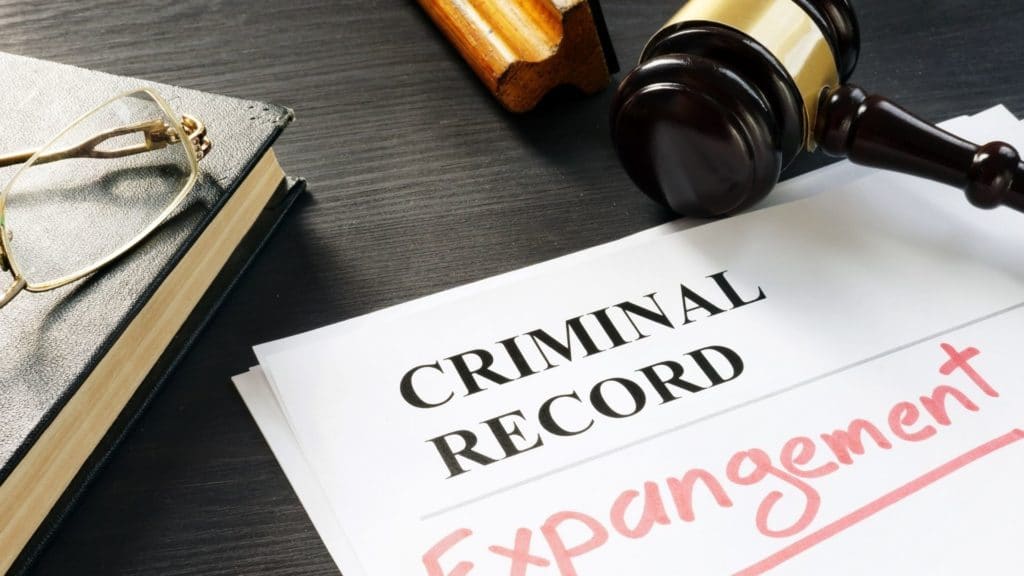In the United States, the government categorizes crimes by their seriousness. States classify crimes by the sentencing lengths, and some use the incarceration location.
If you are a defendant in a criminal trial, you should know how your crime is classified, especially if it is a felony.
Contents
Felony Definition: What is a Felony?

Around the United States, felonies are crimes that put the guilty party in prison for at least one year. Felony crimes tend to be violent and harmful to society. Courts of law consider felonies to be dangerous crimes like first-degree murder, rape, and arson.
The government considers other less serious crimes as misdemeanors or citations. For example, if you receive a speeding ticket for driving ten miles over the posted limit, you will receive a citation.
If you are driving recklessly or get a DUI, you could receive a misdemeanor. Citations usually result in fines, while misdemeanors could have fines and possibly minimal jail time.
To be considered a felon, a court must convict you of the crime. If an officer arrests you on a felony charge, you are not a felon yet, but someone (usually a police officer) believes you have committed a crime. Felony charges happen when someone has legal action taken against them.
Types of Felonies
Governments organize felonies into classes and types. States determine into what class or category the felony belongs. Most governments agree on these five felony descriptions:
- Drugs: Distributing, trafficking
- Property: Arson, grand theft, vandalism
- Sex: Assault, human trafficking, rape
- Violent: First- or second-degree murder
White-collar: Embezzlement, tax evasion
State governments classify felonies based on their seriousness. States label the most violent felonies, like first-degree murder, as Class I or Class A. Criminals convicted of Class A felonies spend the maximum time in prison.
States put less violent felonies in categories further through the alphabet or up the numerical scale. A Class E or Class 5 felony receives a significantly shorter prison sentence than a Class 3 or Class C felony.
Does a felony go on your record?
If a court convicts you of a felony, the conviction will stay on your record for life. The only way to remove a felony from your record is to go through a process called expungement.
Otherwise, background checks will show your felony charges to anyone who might hire you, rent an apartment to you, or consider giving you a loan.
Criminal Procedures for Felonies

If a law enforcement officer accuses you of a felony, the process to determine if you committed the crime is lengthy. Felonies include being arrested, then moving through the arraignment process. After being arraigned, the accused then attends several pre-trial conferences and motion hearings before the actual trial.
The federal government has rigid procedures for charging and prosecuting felonies, while states have their own steps. In most locales, accused felons face a hearing shortly after their arrest. In this initial appearance, the accused learns about the charge, their rights, and possible bail. Witnesses do not share testimony in the initial court visit.
A preliminary hearing may follow. During this hearing, the court determines if evidence exists to show the defendant may have committed the crime. The prosecuting attorney must prove that evidence exists. The arresting officer usually provides the evidence, and witnesses might corroborate, if necessary.
The following steps vary by state. If the court determines that enough evidence exists to prosecute the case, a grand jury might convene to look closely at the evidence. The next step is an official arraignment, along with hearings about various motions for the case. Witnesses will conference with the attorneys, and then the actual trial begins.
Before a trial begins, potential jurors must go through various procedures, lawyers must subpoena witnesses, and courts must follow several steps. The process of convicting a felon is lengthy and somewhat complicated. Anyone accused of a felony should retain a criminal law attorney.
Punishments and Sentences for Felonies
States determine their own punishments and sentences for felonies. Generally, felons receive sentences in state prisons. Those punishments usually last at least one year. In some situations, felons receive death sentences, especially in states that have the death penalty.
Felons can also lose rights after they complete their sentence. Some states prohibit felons from voting or from serving on juries. Most states do not allow convicts to work in schools or in other careers that require professional licensure. Criminals also struggle to find housing or jobs.
States with felony classification systems often have standard sentencing guidelines. For example, a felon with a Class A violation might receive a longer sentence than a felon accused of a Class E violation. Some states have preset punishments for each felony crime. Other states let the judge decide on the sentence in a case-by-case manner.
Cost of Felonies
Felonies are expensive. Lawyers generally charge hourly rates between $300 and $450 per hour, and many ask for up-front retainers of $5,000 to $10,000. Along with paying an attorney, people charged with felonies often have court fees.
The cost of a felony is more than the lawyer and the court. If a court convicts you of a felony, you will lose your job and spend at least a year of your life in prison. You will be away from your family and friends in an unfriendly environment where you lose your freedom. Your felony conviction follows you out of jail and limits what you can do on the outside.
Because of the long-term effects of having a felony conviction, the actual cost is unknown. One thing is certain: the price involves more than money. It includes losing dignity, respect, and freedom. Felons who are married or have children also lose precious time with their loved ones.
States have different scales regarding fees for felonies. Some states, like New York, charge over $100,000 for some felonies. Your attorney can tell you more about the fees for your felony.
Misdemeanor vs Felony
Felonies and misdemeanors have significant differences. As felonies are serious crimes with lengthy punishments, misdemeanors are minor infractions with smaller punishments. Misdemeanors include petty crimes like public intoxication, a DUI, or shoplifting. Punishments involve jail time under one year, fines, and temporary punishments.
Both misdemeanors and felonies remain on your record unless you have them expunged. Misdemeanors are violations of the law, so some employers might not hire you if you have them on your record, especially if the misdemeanor is related to a potential job. For example, if you have been convicted of shoplifting, you might struggle to find a job in a store.
In some states, felons lose many of the civil rights. People with misdemeanors retain all of their civil rights. Some states have distinctive differences between misdemeanors and felonies, while others have what are known as “wobblers,” where the crime could be a felony or misdemeanor based on who is prosecuting it and whether the accused used weapons.
Whether you are convicted of a misdemeanor or a felony, the state or federal government will assess a fine. Usually, misdemeanor fines are under $5,000, but some states do have fines up to $10,000. Felony fines can be as high as $250,000 in some states but they are typically around $100 – $30,000 and depend on the type of crime.
More than half of the 50 states have three-strike laws which heavily penalize repeat offenders. In some states, repeat felons can spend life in prison after a third crime. Some states apply the three-strikes law to misdemeanors, too.
Felony Expungement

If you have a felony or misdemeanor, that criminal activity remains on your permanent record forever, especially if you committed it while you were over the age of 18. The blemish on your record will affect your job and apartment hunting.
The Equal Employment Opportunity Commission has strict rules about hiring people with criminal records. Despite the rules, employers in some industries can turn away applicants with felonies or misdemeanors on their records.
In some states, landlords can turn away felons who have been out of prison for less than five or ten years. Felons are not protected by federal laws regarding housing, while some Section 8 rules encourage landlords to rent to felons.
To make life easier after leaving prison, convicted felons can have their records expunged. This time-consuming and expensive process removes the criminal record from your permanent record. Lawyers need to be involved in the expungement, which makes the process expensive. No lawyer can guarantee that a court will expunge your record, either.
In general, violent crimes like murder and rape cannot be expunged. Courts are more likely to expunge the records of people who committed crimes while they were under age 18. Courts also look favorably on expunging crimes that were committed many years ago, as long as the felon served their punishment.
Conclusion
Felonies are dangerous crimes that put society at risk. If you are convicted of a felony, that event will stay on your permanent record for your entire life.
The conviction will affect your ability to find a good job and a nice place to live. Felonies are expensive violations that destroy lives, not just of the victims but the people who commit the crimes, too.


